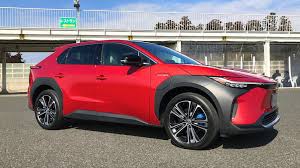
EV Registrations See 5% Increase in October, Driven by Legacy Brands
Electric vehicle (EV) registrations in October 2024 rose by 5%, driven by strong gains from legacy car brands. Despite a decline in Tesla sales, traditional automakers are showing resilience in the growing EV market. The shift towards electric mobility continues to accelerate, as established brands embrace the transition and introduce new models to meet increasing consumer demand.
Legacy Brands Lead the Charge in EV Market Growth
In a surprising turn, legacy brands have been the main drivers behind the increase in EV registrations. Companies like Ford, General Motors, and Volkswagen have reported significant sales growth of their electric models. These brands, long associated with internal combustion engines, are making substantial investments in electric technologies. Their efforts are paying off as more consumers opt for their electric offerings, drawn by improvements in range, affordability, and design.
Ford, for example, has seen a remarkable uptick in the popularity of its electric F-150 Lightning and Mustang Mach-E, while General Motors’ Chevrolet Bolt continues to attract budget-conscious buyers. Volkswagen’s ID.4 has gained traction in the U.S. market, further contributing to the legacy brand surge in EV sales.
Tesla Faces a Setback, But Still Dominates the EV Market
Despite the overall growth in EV registrations, Tesla experienced a slight decline in sales during October. The company, once the dominant force in the EV market, faces increased competition from both legacy brands and newer entrants. Tesla’s sales drop can be attributed to various factors, including supply chain challenges and growing consumer interest in more affordable electric vehicles from other brands.
However, Tesla remains a leader in the EV market, with its vehicles still among the best-selling electric models. The decline, though noticeable, has not diminished Tesla’s position. The company continues to innovate with its advancements in autonomous driving technology and plans for new electric models.
Rising Competition and Changing Consumer Preferences
As the EV market matures, competition is intensifying. Consumers are becoming more discerning, looking for a wider range of choices that suit their specific needs. While Tesla continues to dominate in terms of performance and technology, legacy brands are closing the gap with competitive pricing, improved infrastructure, and more options across different vehicle segments.
Additionally, traditional automakers are accelerating their production of affordable EV models, making them accessible to a broader audience. The availability of electric options across different price points is reshaping the market, making it more difficult for any one brand to maintain a monopoly on EV sales.
Outlook for the EV Market in the Coming Months
Looking ahead, the EV market is expected to continue its upward trajectory. With an increasing number of consumers seeking sustainable transportation options, both legacy brands and newer entrants are positioning themselves to capture more market share. Governments around the world are also continuing to offer incentives for EV purchases, further encouraging the shift toward electric mobility.
Tesla may need to adapt to the growing competition, but its established brand recognition and cutting-edge technology will keep it a strong player in the market. Meanwhile, legacy brands will likely continue to gain momentum as they ramp up EV production and refine their electric offerings.

